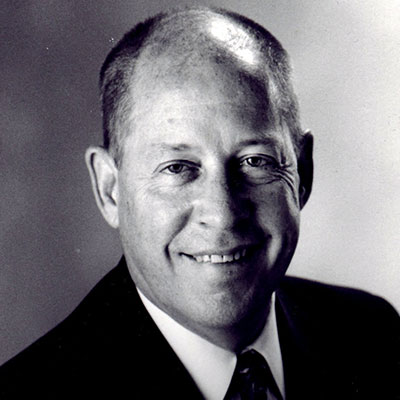Lawyer Lets Facts Do the Talking
Mention his courtroom hot streak - which includes winning high-profile decisions in the past month for Motorola Inc. and the Chicago Board of Trade - and Kirkland & Ellis lawyer Garrett B. Johnson's instinct is to respond with a self-deprecating remark.
"I'm a failed doctor," Johnson said wryly. "My brother is a cardiologist. I'm the black sheep of the family."
Johnson studied chemistry at Princeton with hopes of going to medical school, but instead opted to study law at the University of Michigan, where he graduated in 1971.
"When I was a junior in college, I realized that I didn't like science, and wasn't all that fond of sick people," he deadpanned.
Medicine's loss is Kirkland & Ellis' gain, said Thomas Yannucci, chair of the firm's management committee.
"I would say Garrett is one of the very premier lawyers that our firm has," he said. "I do really think he's at the top of his game. He's trying a lot of cases, and he's at the top of his powers applying the lessons that he's learned over the years."
Johnson said a key lesson he's learned in his career is to rely on facts, not emotion, in the courtroom. This approach figured in the three big victories Johnson has won in the past year and a half.
His most recent victory came on Oct. 10 in U.S. District Court in Chicago in a class-action suit filed against the CBOT. Soybean farmers argued that the CBOT's 1989 decision to order Italian trading firm Ferruzzi Finanziaria SpA, which appeared to be cornering the market in soybean futures, to liquidate its position damaged the farmers financially.
Three months after the order, the cash market for soybeans had dropped about 25 percent, and the farmers contended that the CBOT made the move to protect Cargill Inc., a powerful customer.
Johnson presented the CBOT's argument that its action was justified simply to prevent Ferruzzi from cornering the market in soybean futures. As the Commodity Futures Trading Commission and the General Accounting Office of the U.S. Congress had done previously, Judge Wayne Anderson agreed with Johnson.
Carol Burke, executive vice president-general counsel of the CBOT, landed Johnson for his performance. "He has a remarkable ability to distill sometimes multiple complex areas of the law to a jury," she said.
Before the CBOT victory, Johnson helped Motorola win a key evidentiary hearing in the case of Newman v. Motorola, in which U.S. District Judge Catherine Blake issued a ruling on Sept. 30 that the evidence submitted didn't warrant a trial.
Dr. Christopher Newman had argued that his brain cancer was caused by the use of a Motorola analog cell phone. The law firm of Peter Angelos, Dr. Newman's attorneys, presented a study from Dr. Lennart Hardell, a Swedish oncologist who found that people who develop tumors "were more likely to report that their phone use had been on the same side of the head as the tumors," Judge Blake wrote in her decision.
Nonetheless, the evidence presented by Johnson and his team of attorneys punctured Hardell's findings, and Blake ruled for the defendants.
The third notch on Johnson's gun also was a victory for Motorola.
In a class-action suit Baker v. Motorola, which was decided last year in Arizona, plaintiffs argued that Motorola's dumping of trichlorethylene damaged property values in south Scottsdale, Ariz.
With the help of a massive database that compared property value increases in south Scottsdale with other communities in Arizona, Johnson and his team convinced the jury that the plaintiff's property values had not been diminished.
What may be most remarkable about Johnson's string of victories is that they took place in an environment where capitalist enterprises and corporations are under suspicion.
"It's certainly more of a challenge these days in the current environment to represent a corporation, because of the excess in the late `90s, but it hasn't made it impossible," Johnson said.

